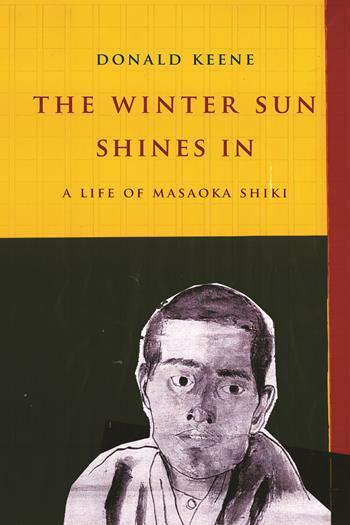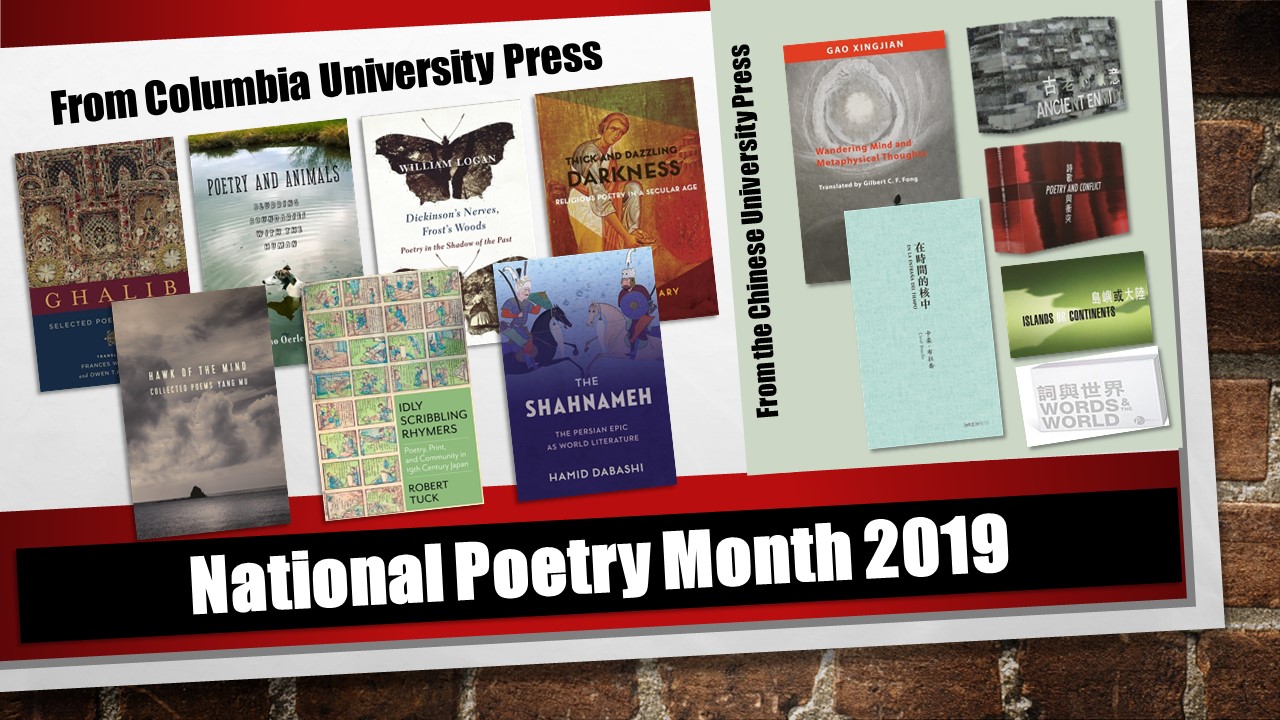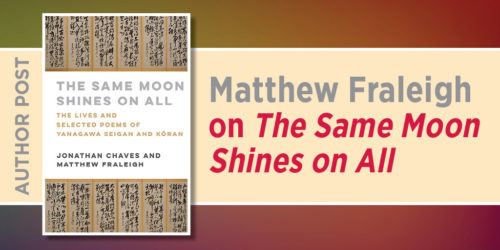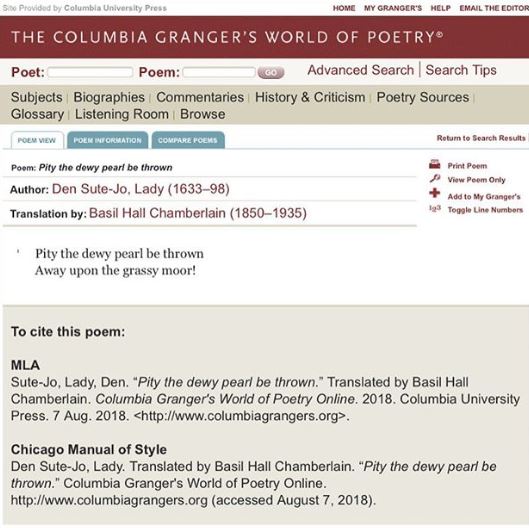Masaoka Shiki & Haiku’s Political Turn in 19th Century Japan
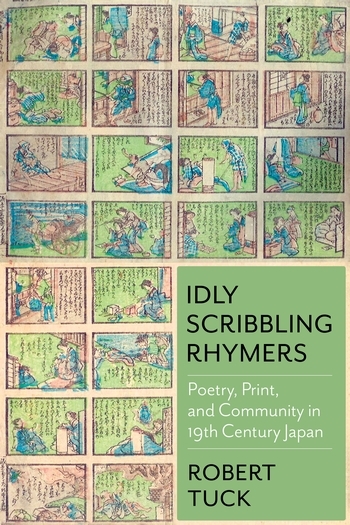
In honor of Poetry Month, today we have a guest post from Robert Tuck about Japanese poet Masaoka Shiki. Robert Tuck is the author of the forthcoming title Idly Scribbling Rhymers: Poetry, Print, and Community in Nineteenth-Century Japan.
• • • • •
Masaoka Shiki was unquestionably the single most important haiku poet of Japan’s modern period. Born Masaoka Tsunenori in 1867 in the town of Matsuyama on the island of Shikoku, Shiki’s life was short – he died in September 1902 of complications related to long-term tuberculosis – but his writings and poems did much to shape haiku as it is practiced to the present day. Key among his ideas was the notion of shasei, or “sketch from life,” a way of composing haiku that stressed simple, direct, and objective description, primarily of the natural world and the four seasons. Among his most famous and widely debated verses is one from 1900, composed on viewing the small garden in his house in Tokyo. At this point in Shiki’s life, he was largely bedridden on account of his infirmity and so would probably have been looking at his garden while reclining:
keitō no
jūshigohon mo
arinu beshi
cockscomb flowers;
must be fourteen
or fifteen of them. (1900)
Shiki was also an active poet in kanshi (poetry in literary Chinese) and in tanka, the modern form of waka, Japan’s oldest native verse form. In his tanka, too, Shiki’s later verse show a marked tendency towards simple, objective description:
kame ni sasu
fuji no hanabusa
mijikakereba
tatami no ue ni
todokazarikeri
placed in a vase,
a bundle of wisteria –
so short
it doesn’t reach
the tatami mats. (1901)
The idea of “sketch from life” haiku is probably Shiki’s most widely acknowledged contribution to modern Japanese literature; in addition to haiku and tanka, Shiki’s work also inspired a number of major novelists and prose writers to experiment with so-called shaseibun, or “sketch-from-life prose.”
However influential it may have been, shasei was an idea that Shiki most clearly articulated towards the end of his life and career, and so I’d also like to explore some of the less well-studied aspects of Shiki’s early career, particularly his work at the newspaper Nippon (‘Japan’) during the 1890s. It’s generally understood that haiku, as a genre that focuses primarily on the natural world and the four seasons, is largely apolitical. However, the 1890s in Japan, the time at which Shiki was beginning his career as a poet-journalist, were an especially turbulent time politically, with frequent factional gridlock in the Japanese Diet (or parliament). Issues such as governmental corruption and foreign relations dominated debates in both newspapers and in the Diet itself; one particularly contentious topic was reform of the unequal trade treaties the Japanese government had been pressured into signing in 1858, shortly before the fall of the Tokugawa military government. On this topic in particular, many nationalist intellectuals felt that the Meiji government was insufficiently aggressive in pursuing reform of these treaties and restoring Japan’s national pride.
Nippon was one such nationalist newspaper; it regularly published editorials condemning the Meiji government for its lack of backbone, and, as might be expected, its literary content reflected its politics. Though the indications are that Shiki was not particularly fond of doing so, he wrote a number of political haiku during the early 1890s that addressed the topics of the day. The unequal treaties had initially restricted the movement of foreign residents within Japan, though by the 1890s this was being routinely ignored and foreigners generally moved freely within the country. Japanese hard-liners argued at the time for strict enforcement of the treaty restrictions – in effect, kicking the foreigners out – in order to gain leverage in negotiating with the Western powers. Shiki signaled his sympathies to this viewpoint by means of the following verse:
hatsuyuki ya
kutsu monnai e
iru bekarazu
first snowfall –
boots shall not pass
through the gate. (Dec. 20th, 1893)
Boots, of course, would be footwear favored mainly by Westerners. In other verses, Shiki commented wryly on the suspension and dissolution of the Diet as a result of partisan gridlock, likening political speechifying to harsh and unpleasant winter winds:
kogarashi no
tōka bakari wa
yasumikeri
bitter winter winds,
for ten days or so
giving it a rest. (Dec. 20th, 1893)
Never particularly open to criticism, as the decade wore on the Meiji government increasingly began to crack down on open dissent against its policies in Japan’s print media. This became especially acute in the run-up to the 1894-5 Sino-Japanese War. At various points during the summer of 1894, for instance, a sister publication to Nippon that Shiki himself was editing, Shō Nippon (‘Little Nippon,’) was repeatedly banned from publishing for a set period of time, the Meiji government retaliating for Shō Nippon’s publication of critical editorials. The paper published the following verses in protest:
yuku haru o
mugon no hito no
aware nari
the passing spring –
ah, the sadness of a man
who has no voice. (April 26th, 1894)
hototogisu
naku na to mōsu
hito mo ari
there are some men who
would even tell the cuckoo
that it should not sing. (May 10th, 1894)
Shiki’s pen name, as is well known, literally means “cuckoo.”
This overtly political use for haiku will perhaps surprise some readers more familiar with the work of such haiku greats as Matsuo Basho, Yosa Buson, and even Shiki himself. However, political haiku were common in Meiji newspapers as a whole (and certainly not unique to Shiki). Though rarely remarked upon in discussions either of Shiki or of haiku’s development as a modern literary genre, highlighting political verses alongside Shiki’s shasei helps us to better understand both Shiki’s career as a whole and the ways in which haiku adapted itself both to the media landscape and turbulent political currents of the modern period.

